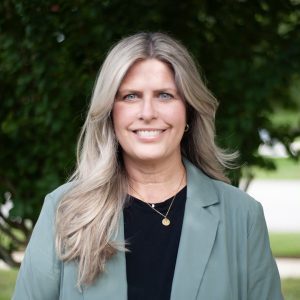Graduate Program
The UCF Sociology graduate programs prepare students for successful careers in both academic and applied settings. The curriculum integrates theoretical and methodological training with a strong focus on community-based research, offering specialization in one of three areas:
- Crime & Deviance: Broad analysis of criminal and deviant behavior, including locations of crime, crime rate fluctuations, and crime victims’ experiences.
- Medical Sociology: How social statuses relate to health, illness, and medical care.
- Social Inequalities: How power, social, and spatial inequalities are manifested, reinforced, and contested in contemporary society.
We encourage our students to interact with our faculty, staff, and community partner network to elevate their learning and develop new theories, methods, and skillsets for both academic and non-academic careers. We support full-time and part-time graduate school options in our department. To help our students succeed, our department promotes collaboration, dialogue, professional development, mentoring networks, diverse and inclusive workspaces, community connections, and cutting-edge research and education opportunities for students to work with faculty, staff, and community stakeholders. Our programs also provide opportunities for students to engage with faculty on collaborative research projects, journal articles, and presentations at academic and non-academic conferences/meetings/workshops.
Our Faculty
Our faculty is composed of 15 tenure-track scholars with extensive experience and national recognition. They are actively engaged in research funded by leading agencies, including the National Institutes of Health, the U.S. Department of Justice, and other local and state organizations. Their work is widely published in high-impact journals, like Journal of the American Medical Association, Journal of Health, Criminology, American Journal of Public Health, and Gender & Society.
General Program Features
- Full-time and part-time study options
- Professional development and networking opportunities
- Interdisciplinary research with faculty, staff, and community partners
- Collaborate across fields such as public health, criminal justice, psychology, social work, and anthropology
- Opportunity to integrate advanced training in spatial science and GIS
- Present and publish with faculty
- Funding opportunities available, including assistantships and scholarships
- Participant incentives for MA and PhD research projects
Graduate Program Contact
Students thinking about our graduate programs are encouraged to reach out to Dr. Amy Donley, UCF Sociology Graduate Director and Associate Professor.
Message from the Director: We’d love to learn more about your interests, how they might align with our department’s strengths, and how we could work together to create a learning path to support your career goals, your education, and your professional development. We are a diverse, inclusive, and vibrant learning community with students, faculty, and staff from all across the globe. We’re located in one of the fastest-growing metropolitan regions in the country (the Orlando MSA) and just 45 minutes from the Atlantic Coast and less than 2 hours from the Gulf Coast.
Please do reach out so we can get to know each other and discuss how UCF Sociology graduate programs can support your next steps. Thank you for visiting our website site and social media channels, and for considering an application to our program. Whether you choose to apply to our program or another program, we hope you find a supportive environment to support your efforts and to elevate your skillsets for the next step in your career.
About the Graduate Director:
I am an Associate Professor in the UCF Department of Sociology and the Director of the Institute for Social and Behavioral Science (ISBS), a community-based research institute housed in the Sociology department (learn more about ISBS here). I am an applied sociologist whose research focuses on diverse topics including housing precarity and homelessness, poverty, food insecurity, substance use and misuse, and intimate partner violence, among others. Through ISBS I have partnered with over 50 organizations and government entities including Lift Orlando, United Against Poverty, Orange County Drug Free Office, Miami Dade County, and Florida Fish and Wildlife Conservation Commission.
My work appears in many journals including Journal of Social Distress and the Homeless, Journal of Applied Social Sciences, and Journal of Forensic Psychology Practice. My most recent book, entitled Between Systems and Violence: State-Level Policy Targeting Intimate Partner Violence in Immigrant and Refugee Lives, is co-authored with UCF Sociology doctoral student, Julio Montanez, and UCF Sociology Professor, Dr. Amy Reckdenwald.
I have several current research projects underway including a qualitative study focused on the growing senior homeless population and an analysis of Good Samaritan laws as a form of harm reduction.
Office Hours:
Thursdays 3:00 PM – 5:30 PM EST, and by appointment

